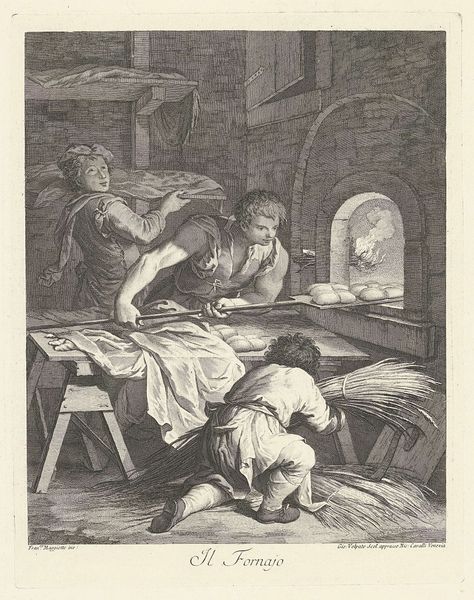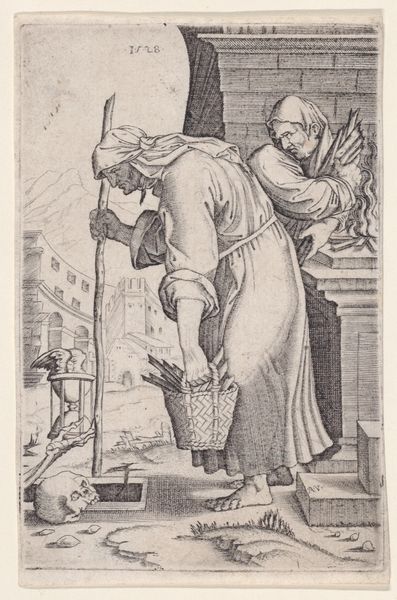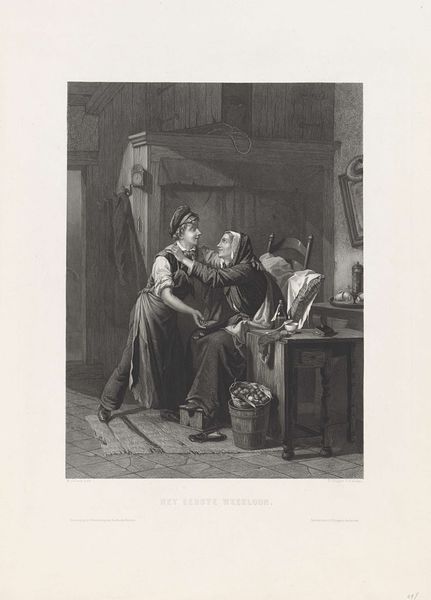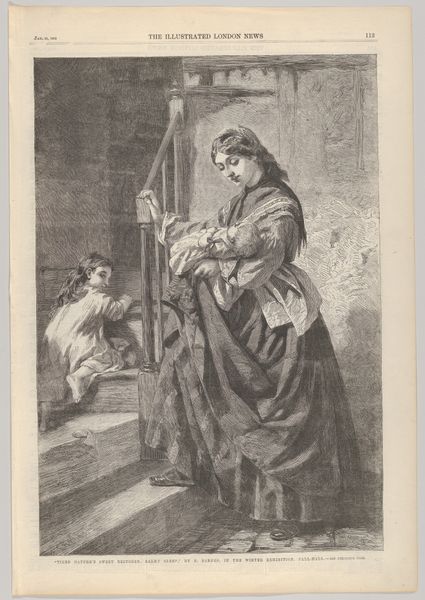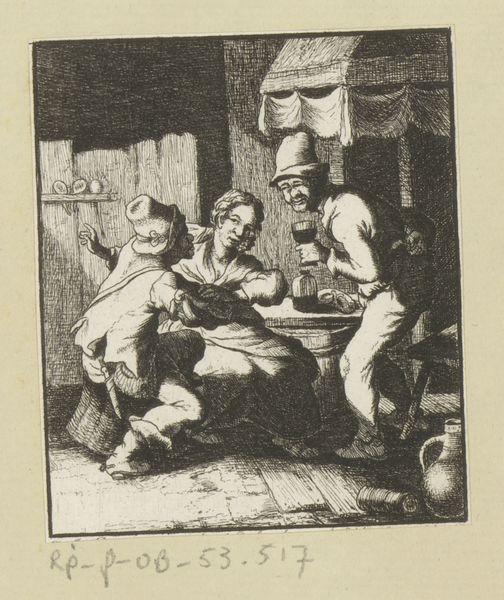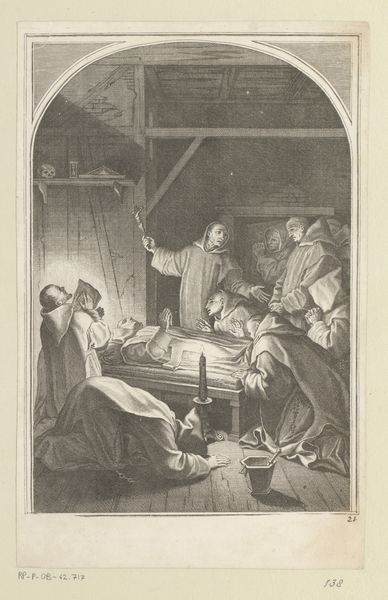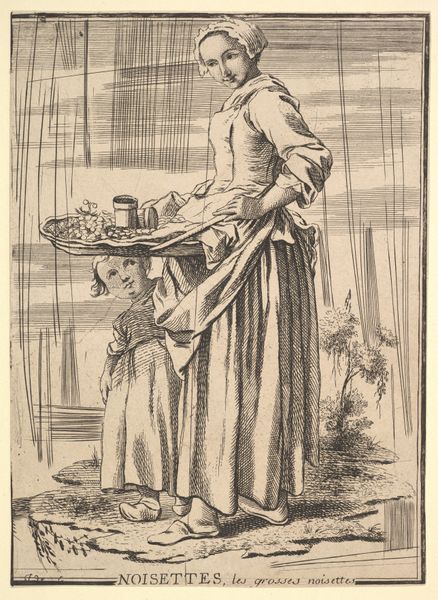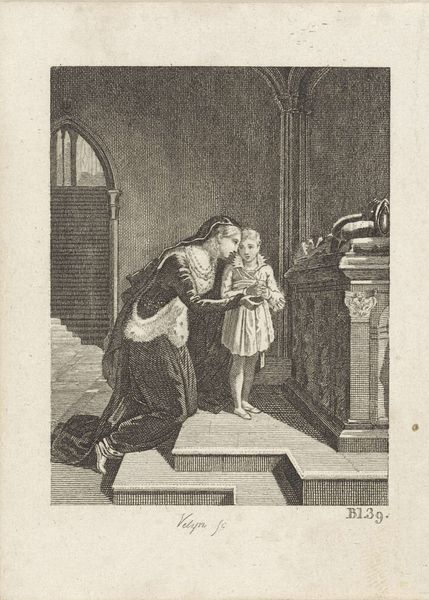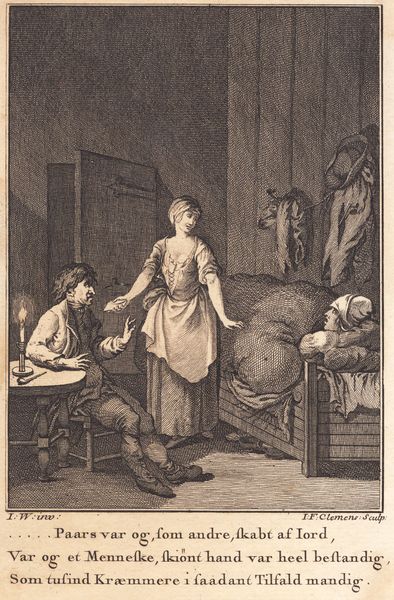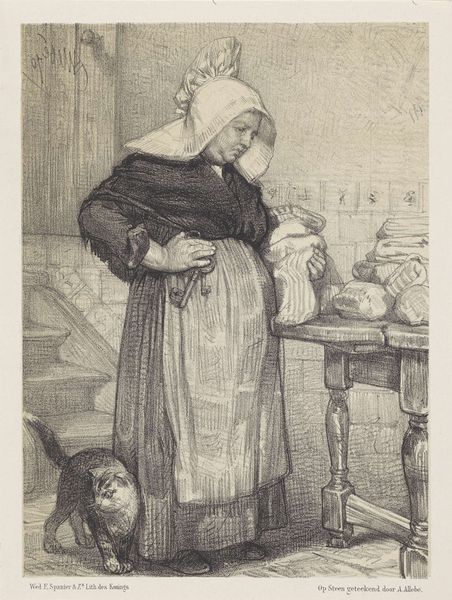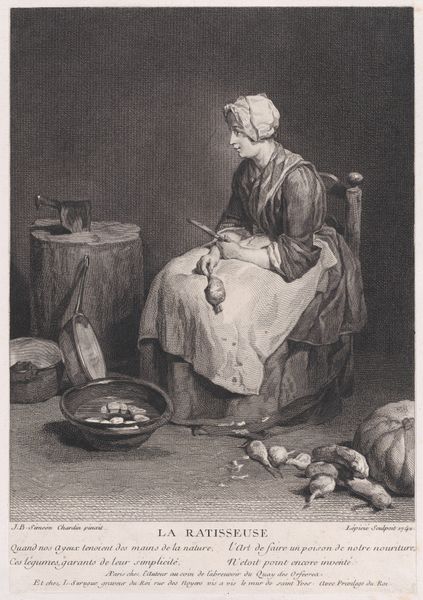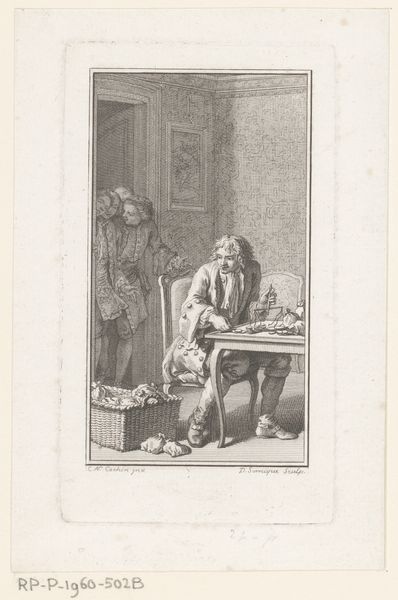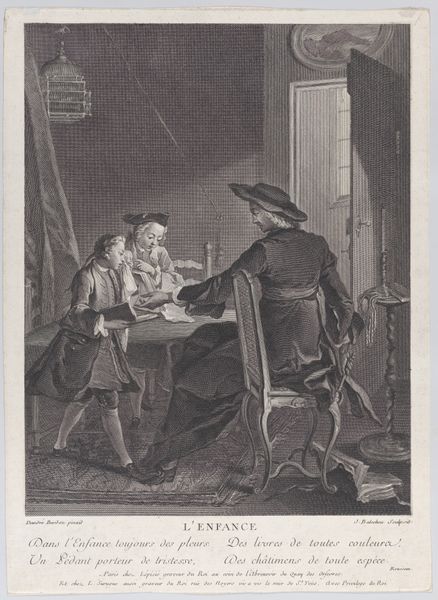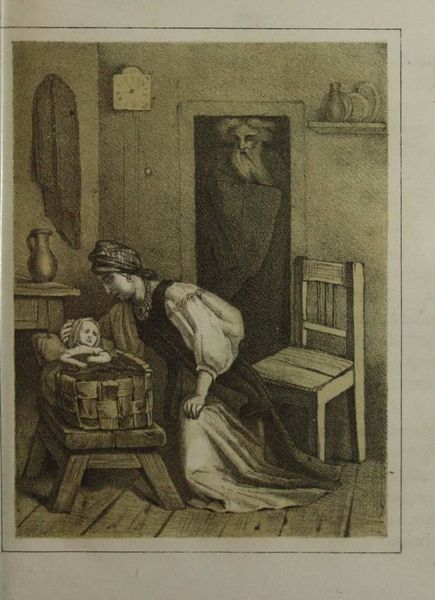
The Parable of the Leaven (The Parables of Our Lord and Saviour Jesus Christ) 1864
0:00
0:00
drawing, print, fresco, engraving
#
portrait
#
drawing
#
narrative-art
# print
#
figuration
#
fresco
#
genre-painting
#
northern-renaissance
#
engraving
#
realism
Dimensions: image: 5 1/2 x 4 5/16 in. (13.9 x 10.9 cm) sheet: 7 5/16 x 6 1/16 in. (18.6 x 15.4 cm)
Copyright: Public Domain
Sir John Everett Millais created this print, “The Parable of the Leaven,” using a process called wood engraving. This technique, popular in the 19th century, involves carving an image into the end grain of a block of wood, a dense material that allows for fine detail. Look closely, and you can see the texture created by the artist's cuts. This influences the artwork's appearance, adding depth and a tactile quality to the scene of a woman kneading dough, perhaps making bread for her family. The subject itself is significant. Millais elevates the everyday act of baking to the level of fine art, depicting a form of labor traditionally associated with women and the domestic sphere. Wood engraving, as a reproductive medium, allowed for the wide circulation of images, bringing art to a broader audience. The medium's accessibility mirrors the parable's message, suggesting that even the simplest actions can have profound effects. By focusing on both the humble subject matter and the accessible medium, Millais challenges the traditional hierarchy between fine art and craft.
Comments
No comments
Be the first to comment and join the conversation on the ultimate creative platform.
